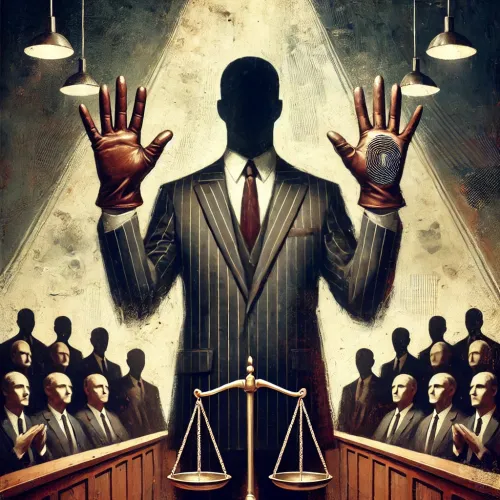In March 1969, nine anti-war activists, later known as the "D.C. Nine," entered the Washington, D.C., offices of the Dow Chemical Company. They vandalized property and poured a blood-like substance as a form of protest against Dow's production of napalm used in the Vietnam War. The activists were arrested and charged with destruction of property and unlawful entry.
Trial Proceedings
During the trial, the defendants admitted to their actions but sought to justify them on moral grounds, aiming to present a defense based on the necessity to prevent greater harm. They requested that the jury be instructed on their right to acquit based on conscience, regardless of the law and evidence—a concept known as jury nullification. The trial judge denied this request and prohibited defense counsel from arguing jury nullification to the jury. The defendants were subsequently convicted on all counts.
Appeal
The defendants appealed their convictions to the U.S. Court of Appeals for the District of Columbia Circuit, asserting that the trial judge erred by refusing to instruct the jury on jury nullification and by restricting related arguments. They contended that jurors have an inherent right to be informed of their power to acquit based on conscience, even if it contradicts the law and evidence.
Court of Appeals Decision
On June 30, 1972, the Court of Appeals issued its decision, with Judge Harold Leventhal writing for the majority. The court acknowledged the historical existence of jury nullification, recognizing that juries have the power to acquit defendants regardless of the law and evidence. However, the court held that judges are not required to inform juries of this power, nor should defense counsel be permitted to argue for nullification during trial. The court reasoned that explicitly instructing juries on nullification could lead to legal unpredictability and undermine the rule of law.
Key Points from the Decision
- Recognition of Jury Power: The court affirmed that juries possess the de facto power to acquit against the law and evidence, a practice rooted in common law traditions.
- Judicial Discretion: The court emphasized that while juries have this power, judges are not obligated to inform them of it. The court expressed concern that such instructions could encourage verdicts based on personal biases rather than legal principles.
- Role of Defense Counsel: The court upheld the trial judge's decision to prohibit defense counsel from arguing jury nullification to the jury, maintaining that allowing such arguments could disrupt the legal process and lead to inconsistent verdicts.
- Preservation of Legal Integrity: The court underscored the importance of maintaining the integrity and predictability of the legal system, suggesting that explicit encouragement of jury nullification could result in anarchy and undermine the rule of law.
Dissenting Opinion
Chief Judge David L. Bazelon concurred in part and dissented in part. He agreed with the majority on the defendants' right to self-representation but argued that the jury should have been informed of its nullification power. Judge Bazelon contended that withholding information about jury nullification undermines the jury's role as a check on unjust laws and governmental overreach.
Implications
The Dougherty decision has had significant implications for the American legal system:
- Clarification of Jury Rights: The ruling clarified that while juries have the power to nullify, there is no requirement for courts to inform them of this ability, thereby delineating the boundaries of jury discretion.
- Guidance for Trial Conduct: The decision provided guidance for trial judges on handling requests for jury nullification instructions, emphasizing the importance of upholding legal standards and preventing potential abuses of the nullification power.
- Impact on Civil Disobedience Cases: The case has been particularly relevant in trials involving acts of civil disobedience, where defendants may seek to justify illegal actions on moral or ethical grounds. The ruling limits the ability of such defendants to appeal directly to juries for acquittal based on conscience.
Subsequent Developments
The Dougherty decision has been cited in numerous cases addressing jury nullification and the scope of jury instructions. It remains a pivotal reference point in discussions about the balance between jury independence and judicial authority. The case has also sparked scholarly debate about the role of juries in the justice system and the ethical considerations surrounding jury nullification.
United States v. Dougherty is a landmark case that illustrates the complex interplay between jury independence and judicial authority in the context of jury nullification. By affirming that juries have the power to nullify but that judges are not obligated to inform them of this power, the decision strikes a delicate balance. It preserves the jury’s historic role as a check on governmental overreach while ensuring that the integrity and predictability of the legal system are not undermined.
The Dougherty ruling has had enduring significance, shaping how courts handle cases involving civil disobedience and moral arguments. It has also fueled ongoing debates among legal scholars, practitioners, and activists about the proper scope and limits of jury nullification in a modern democratic society. By maintaining judicial discretion over nullification instructions, the decision underscores the judiciary’s commitment to upholding the rule of law, even as it acknowledges the enduring importance of the jury’s role as the conscience of the community.



